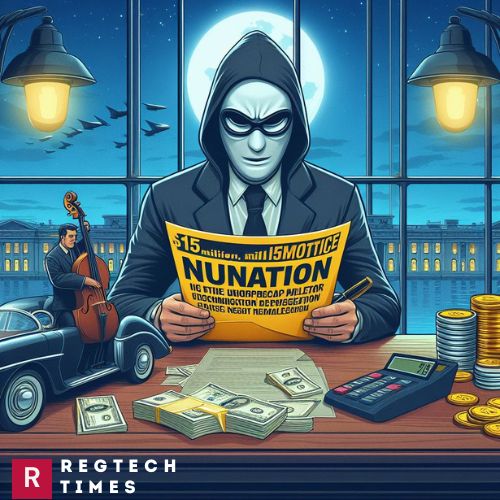Fraudulent schemes often prey on the hopes and dreams of unsuspecting victims, promising riches and rewards that ultimately turn out to be illusions. The case of John Kyle Muller, a Colorado man, shines a light on one such elaborate scam that left many in financial distress.
John Kyle Muller’s operation inundated mailboxes across the country with millions of deceptive prize notices. These personalized letters lured recipients with the promise of life-changing sums of money, but there was a catch: victims had to pay a fee ranging from $20 to $50 to claim their prize. The allure of sudden wealth blinded many to the reality of the scam.
The Deceptive Prize Notices
Muller’s team flooded neighborhoods with a staggering number of fraudulent prize notices, preying on the vulnerability of recipients. Victims, eager to claim their supposed winnings, willingly paid the fees between $20 and $50 each, unaware that they were falling into a trap. The operation reaped substantial profits from these payments, with victims receiving nothing of value in return.
The Illusion of Success
Despite paying the required fees, victims never received the large cash prize they anticipated. Instead, they either received a generic “report” on sweepstakes opportunities or cheap trinkets worth pennies compared to the fees they paid. Muller’s scheme thrived on false hope, leaving victims disappointed and financially drained.
Targeting the Vulnerable
Elderly individuals, in particular, were targeted and exploited by Muller’s operation. The trust and vulnerability of seniors made them easy targets for the scam. It was revealed that a significant portion of the victims were seniors aged 60 and older. Many elderly victims, hopeful for a stroke of luck, sent in their hard-earned money only to be left empty-handed, facing not only financial loss but also emotional distress.
The Web of Deception
Once victims were hooked, the fraudulent mailings didn’t cease. Muller bombarded them with follow-up letters, perpetuating the illusion of impending riches. The victims received multiple follow-up mailings, intensifying the deception. The victims’ contact information became a valuable commodity within the fraudulent mass-mailing industry, facilitating further scams and trapping victims in a cycle of deceit.
The Investigation and Shutdown
In 2018, the U.S. Postal Inspection Service (USPIS) intervened, executing multiple search warrants and ultimately shutting down Muller’s operation. However, by then, Muller and his co-conspirators had already stolen an amount totaling $15 million from unsuspecting victims. The scale of the fraud was staggering, but law enforcement action helped bring justice to those affected.
Lessons Learned
The John Kyle Muller case serves as a poignant reminder of the importance of vigilance, reporting, and protecting vulnerable populations. It underscores the need to remain vigilant when faced with unsolicited prize notices, as they often serve as red flags for potential scams. If an offer seems too good to be true, it likely is, and individuals should exercise caution before engaging further. Prompt reporting of such scams to the relevant authorities is crucial. By reporting, victims not only contribute to tracking down fraudsters but also increase the likelihood of recovering losses.
The case highlights the importance of protecting vulnerable populations, particularly the elderly, from financial exploitation. Educating and raising awareness within these communities can help prevent similar schemes from taking advantage of their trust and vulnerability. In essence, by staying vigilant, reporting suspicious activities, and prioritizing the protection of vulnerable groups, we can collectively combat fraudulent schemes and safeguard our communities.
Conclusion
John Kyle Muller’s fraudulent prize notice scheme exploited trust, dashed dreams, and left victims in financial distress. As consumers, it’s crucial to remain vigilant and informed to avoid falling victim to similar Prize Notice traps. By sharing this story and learning from it, we empower ourselves and others to recognize and avoid Prize Notice fraudulent schemes, thereby protecting our communities and ensuring that justice prevails.



